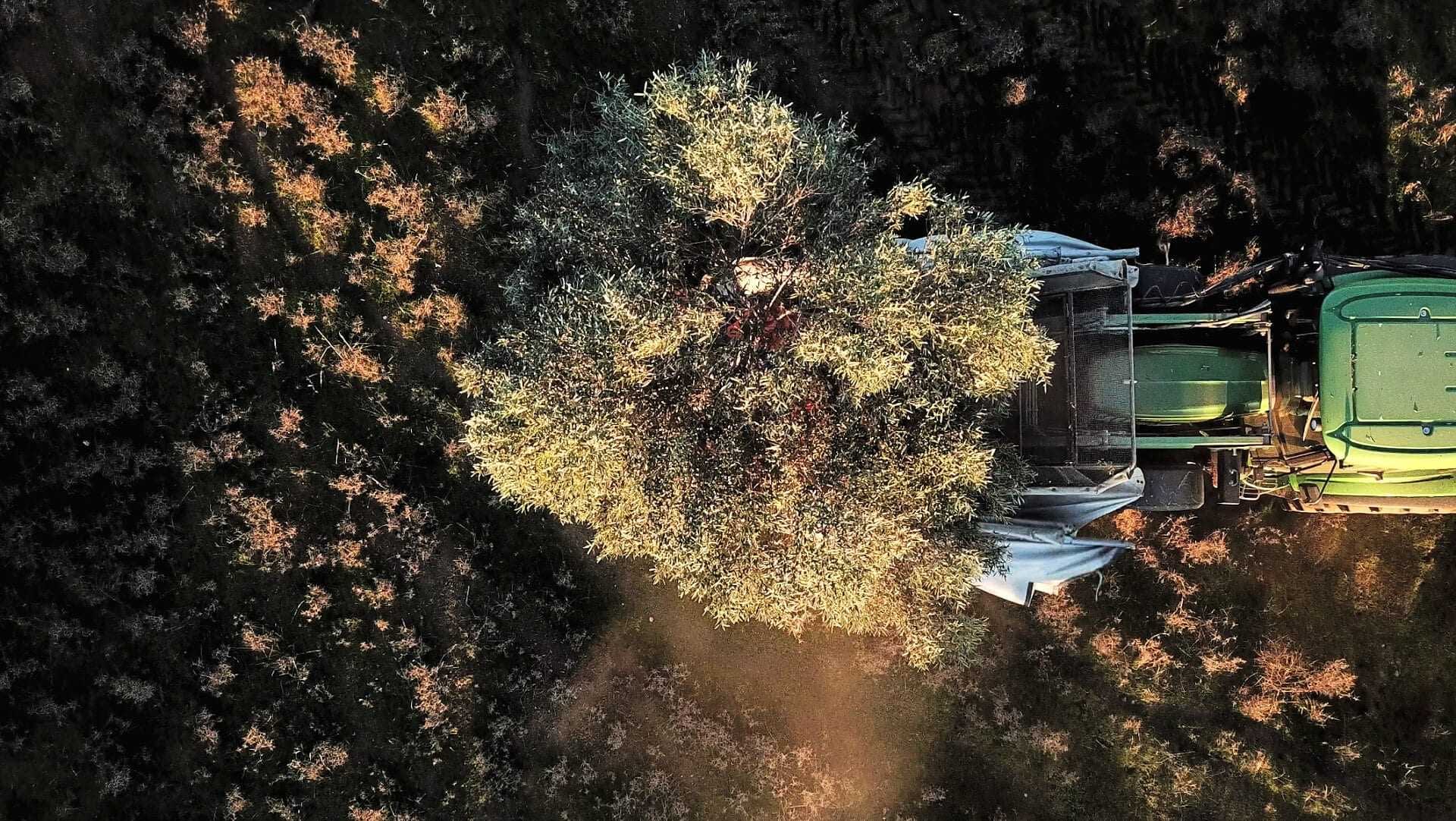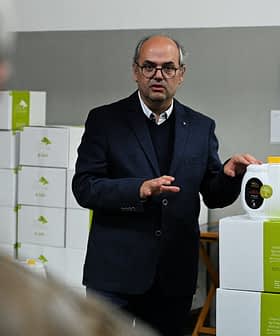Portugal Anticipates Record Yield
A 40 percent increase in olive oil production is expected when harvesting begins in October. Total production is expected to reach 140,000 tons, up from 100,000 tons last year.
 Fresh olive oil at Esporao
Fresh olive oil at EsporaoDespite drought conditions across the country this past summer, Portugal is expecting a near-record olive oil yield in 2019.
Mariana Matos, secretary-general of Casa do Azeite, the Portuguese Olive Oil Association said a 40 percent increase in olive oil production is expected when harvesting begins in October. Total production is expected to reach 140,000 tons, up from 100,000 tons last year.
If we reach these production values, it will be a record production in Portugal.
The expected increase is due to “new and intensive plantations” in the largest and southernmost growing region in Portugal, Alentejo.
“If we reach these production values, it will be a record production in Portugal, the largest ever since there [have been] official records,” Matos said. The records go back to 1915. “This production level is expected due to the high investment that has been made in this sector, particularly in the last decade,” Matos added.
See Also:The Changing Face of Alentejo’s Olive OilThough there are climatic differences between the Alentejo in the south and the Trás-os-Montes region in northern Portugal, much of the country experienced a hot and dry growing season. Despite this, Matos said olive trees resist drought well, and “this year’s differences [in climate] did not greatly affect olive production in these regions.”
Ramon Rivera, managing director of Elaia, a partnership that produces olive oil largely in Portugal, said, “blooming was good and olives have developed in an average quantity,” in Elaia’s Portuguese groves. He agreed that 2019 is shaping up to be a better harvest in Portugal than last year, even if it is not as good as in other parts of Europe.
“The Portuguese growing season is going better than last year, although not as good as the news we hear from Italy or Greece,” Rivera said. Those two countries, in particular, experienced historically poor growing seasons last year.
Spain provides an interesting counterpoint to Portugal. Even though the countries share the Iberian Peninsula, it is Portugal that appears to be in better shape in 2019.
“Spain is in counter-cycle with the major other European producing countries,” Matos said. “Last season, Spain recorded a very high campaign, and as far as we know at this point, a much lower olive oil production is expected next season.”

Monte dos Valhascos
Rivera added that Elaia’s groves in Spain are “going to have a good crop, even though Spain is not expecting a good campaign due to lack of rain and last year’s great harvest.”
Both Rivera and Matos said they are not expecting pest or disease to hamper harvest in Portugal this year, and the drought conditions, in fact, are helping stave off those hindrances.
“If the weather continues to be dry and hot, major diseases or pests that negatively affect quality will not be expected, and in these circumstances, the quality will be high,” Matos said.
Matos said the biggest obstacle to Portuguese producers in 2019 is the market. Even though yields have climbed in recent years — Portugal will harvest more than 100,000 tons for three years in a row this year after dipping to 61,000 tons and 69,000 tons in 2014 and 2016 — the industry faces several challenges.
“As in other European producer countries, the main problem that the sector is facing in Portugal is the low prices of the olive oil, which do not sufficiently pay producers, particularly in the more traditional production areas, with higher production costs and lower profitability,” Matos said.
Matos said harvesting will begin across the country in October, which is typical. Rivera said Elaia’s partner producers will harvest slightly “earlier than last campaign.”





